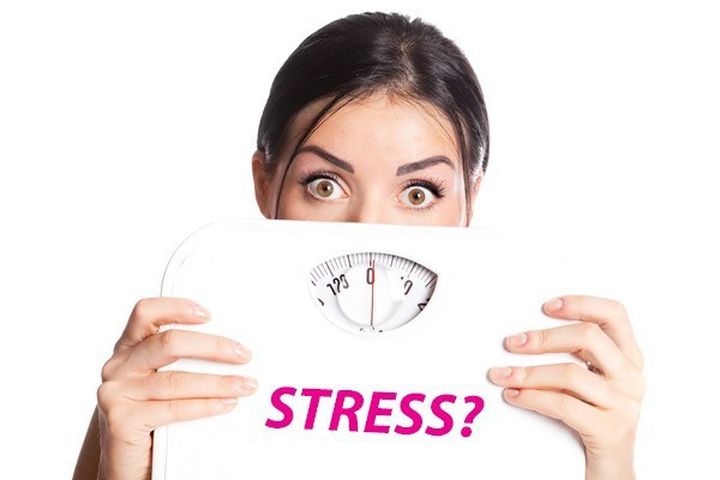The Top 5 Reasons You’re Not Losing Weight—And What to Do About It

Are you frustrated because you’re not losing weight? You’re not alone. Many people struggle to lose weight, and there are a number of reasons why this may be happening. Here are the top five reasons why people tend to struggle with weight loss, and tips on how to overcome these challenges!
Dieting is hard, and many people do not succeed in losing the amount of weight they set out to lose. In fact, 80% of people who lose weight do not maintain have put weight back on again after just 12 months.
People go through a lot to lose weight. Exercise, healthy eating, consuming less, weight loss supplements and patches such as Thrive (see an article reviewing this brand) often all play a part in an individual’s weight loss journey. After putting yourself through a lot to try to achieve your goals, it can be disheartening when you don’t get to where you want to be.
Understanding the reasons why it’s difficult to lose weight – and keep the weight off – can be helpful to reach success. Here are the top five reasons why you might not be achieving lasting weight loss, and what you can do about it.
1. You’re Not Eating Enough Protein

If you’re trying to lose weight, it’s important that you’re consuming enough protein. Protein helps to keep you feeling full, and can also help to build lean muscle mass. Aim to consume at least 20-30 grams of protein per meal, and include protein-rich foods such as chicken, fish, tofu, legumes, and eggs in your diet.
Including protein at every mealtime can help you to lose weight and keep it off. Protein helps you feel full longer after eating, so you’re less likely to snack between meals. It also helps to build lean muscle mass, which can help to boost your metabolism.
If you’re not sure how much protein you should be consuming, speak to a Registered Dietitian or Certified Personal Trainer who can help you to determine your protein needs.
2. Your Metabolic Rate Has Slowed Down

As we age, our metabolism naturally starts to slow down. This is due to a number of factors, including a decrease in muscle mass and changes in hormones. If you find that you’re struggling to lose weight, it may be because your metabolism has slowed down. Metabolism also tends to slow down once you have lost some weight too, which means that you probably can’t eat as much as you could previously without putting weight back on.
In order to boost your metabolism, it’s important to include strength-training in your exercise routine. This helps to build lean muscle mass, which in turn can help to increase your metabolism. Additionally, eating small, frequent meals throughout the day can also help to boost your metabolism.
If you’re not sure how to incorporate strength-training into your workout routine, speak to a Certified Personal Trainer who can create a program specifically for you.
3. You’re Not Sleeping Enough

Sleep plays a vital role in our overall health, and it’s also important for weight loss. When we don’t get enough sleep, our bodies produce more of the stress hormone cortisol. This hormone can lead to increased hunger and cravings, and can also cause our bodies to hold onto fat. Aim to get at least seven to eight hours of sleep per night, and create a bed-time routine to help you wind down before going to sleep.
A lack of sleep can lead to weight gain in a number of ways. As well as the role cortisol plays in holding onto body fat, when we’re tired we tend to make poorer food choices. We may reach for sugary and high-fat foods for a quick energy boost, or we may skip meals altogether.
To lose weight, it’s vital to get enough sleep. If you’re having trouble sleeping, speak to your doctor about possible solutions.
4. You’re Stressed

Chronic stress can lead to weight gain in a number of ways. When we’re stressed, our bodies produce more of the hormone cortisol. Just like when cortisol has been produced due to a lack of sleep, this hormone is likely to trigger increased hunger and cravings. Additionally, when we’re stressed we tend to make poorer food choices, and either eat too much or skip meals.
If you’re struggling to manage stress, there are a number of things you can do. Exercise can help to reduce stress levels, and yoga or meditation may also be helpful. Additionally, speaking to a therapist or counselor can also be beneficial.
Chronic stress can lead to weight gain by causing our bodies to produce yet more of the hormone cortisol. If you’re struggling to manage stress, exercise, yoga, meditation, and/or therapy may be helpful.
5. You’re Focusing On Short Term Wins Instead Of Long Term Change
If you’re only focusing on short term weight loss goals, you’re likely to regain the weight once you return to your normal routine. Instead of crash dieting or restricting certain foods, focus on making long term changes that you can stick with for life. This includes eating a healthy diet and exercising regularly.
Making small, sustainable changes is more likely to lead to long term weight loss than crash dieting or restricting certain foods. Focus on eating a healthy diet and exercising regularly, and you’ll be more likely to see lasting results.
Becoming committed to changing your lifestyle is something you should tackle from all angles. As well as eating healthily and exercising regularly, you may need to work on your mindset too. Work with a health therapist, or get an app to help you focus on your goals. You could even try neuro-linguistic programming (NLP) to help you reframe the way you view food. When it comes to weight loss, slow and steady wins the race. Making gradual changes is more likely to be something you sustain.
If you’re struggling to lose weight, it could be due to one of these five reasons. By understanding the challenges you’re facing, you can develop a plan to overcome them.

